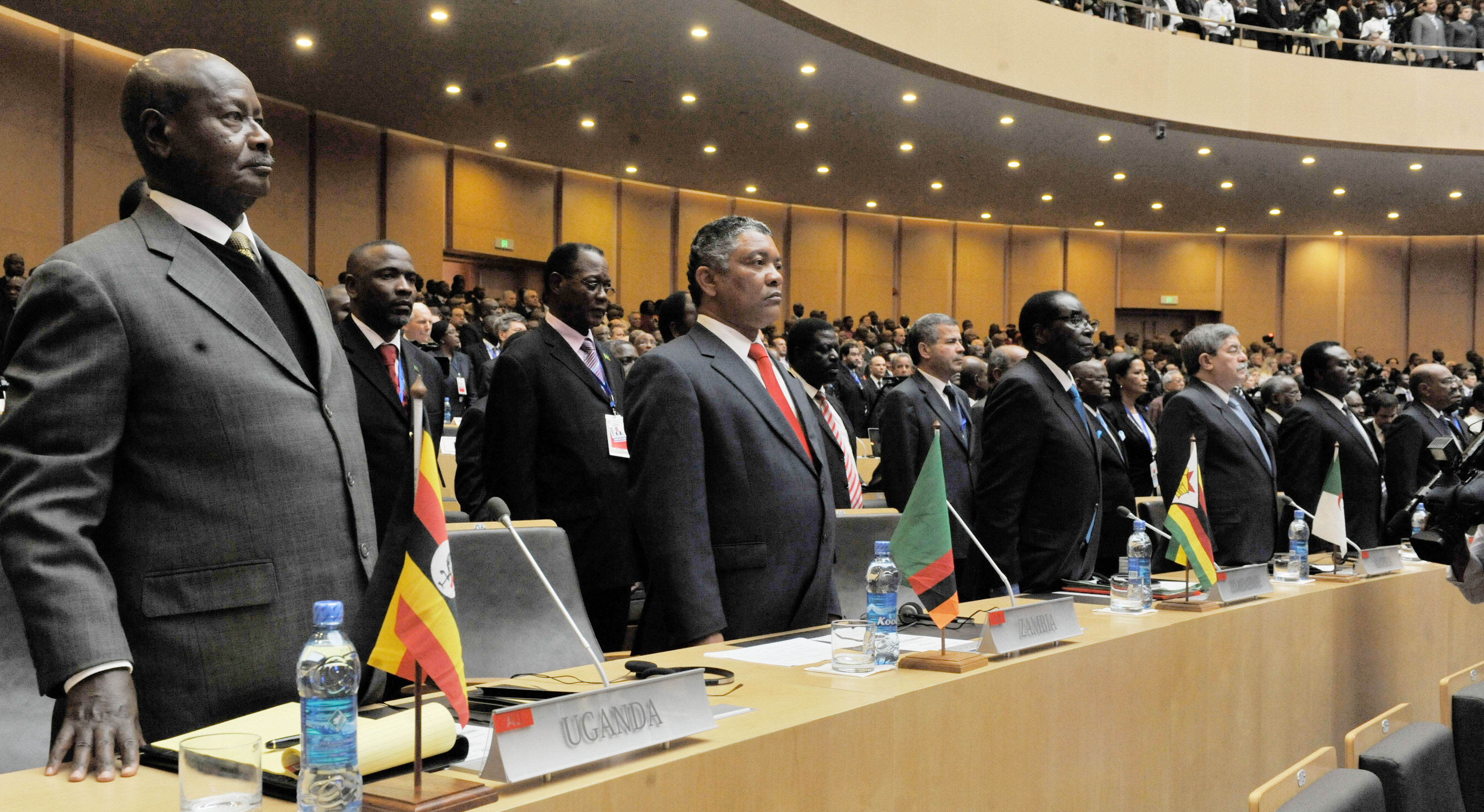Despite leadership concerns and the state of the economy in Zimbabwe, the government of the day has put in place some solid and sustainable models with the aim of growing the nations economy.
The Confederation of Zimbabwe Industries (CZI); one of those organizations saddled with implementation responsibilities, has overtime made sure that as much as possible, the Zimbabwe economy is not only stable but growing.
In an exclusive interview with African Leadership Magazine, President/Chairman of the Confederation of Zimbabwe Industries, Mr. Moyo Busisa, speaks on the true economic state in Zimbabwe, some of the challenges encountered, as well as some solutions to these challenges. Excerpt:
According to the Conference of Zimbabwe Industries (CZI) Survey 2016, 77.1% of respondents rated policy instability as negative or very negative for the economy. In the light of this feedback what in your opinion are some of the sustainable policies you think will be favorable for Zimbabwe industries to thrive?
Firstly, Government will need to stimulate productive sectors which include agriculture, mining, and manufacturing as well as low hanging service offerings such as tourism since Zimbabwe is home to the Victoria Falls. This will require normalizing relations with foreign multilateral creditors including the IMF, World Bank, and non-Paris Club lenders, this will allow for fresh capital to flow into the country and lower country risk which is affecting private sector directly through exorbitant bank lending rates which are at 12-15% in United States Dollar terms, this is “punishing” for infrastructure and private sector development. Secondly, Government will have to put pace on its inclusive value chain development model which impacts positively on communities as well as corporate sector. Agriculture Value Chains include the cotton-to-clothing value chain, beef-to-leather value chain, soya-to-white meats value chain, diamond-to-ornament/jewelry value chains, iron-to-steel value chains, in Zimbabwe most of these value chains are “broken” or incomplete as a result of Zimbabwe’s hyperinflation experience between 2004-2008 which saw corporate failure en-masse and subsequently dollarization in February 2009 which exacerbated the rate of closure of factories and value adding entities in the country. Thirdly, the country has to encourage foreign direct investment (FDI) which is below US$300m per annum by shifting to a friendlier localization or minimum local content policy to replace the Indigenisation Policy, which has largely been misconstrued for “Nationalisation” and the cost environment within the country and finally Government has to give Zimbabweans freehold land title to turn “dead” capital into productive capital this will unlock capital, currently 95% of Zimbabweans DO NOT have titled land in their name, this will dismantle the clutches of poverty.
Private-public dialogue has also been put forward as one of the solutions in the quest to address economic challenges. Do you think the government of Zimbabwe has explored this approach? How best do you think economic challenges in Zimbabwe can be tackled?
Government and private sector rapport have improved significantly in the last 3 years but there is still much work to be done in providing a consistent platform for dialogue and feedback. The Tripartite Negotiating Forum (TNF) and National Economic Consultative Forum (NECF) provide the perfect platform but are infrequently used due to apathy from both private and public sector. As mentioned above in the first question, engagement of foreign creditors to tackle the country’s US$12bn debt position is key, private-public sector dialogue is next, followed by a revival of an entrepreneurial spirit through education and incentives, rapid implementation of the Special Economic Zones Act 24.03 which has recently been passed into law, reviewing archaic laws and aligning them to the country’s new constitution will lead to significant improvements in the economy, reform, wean off or close some of the 97 parastatals and quasi-government institutions, inclusive development programmes in agriculture and mining and attracting FDI will be important in tackling Zimbabwe’s economic challenges.
In September 2016 the finance minister identified “low levels of production and the attendant trade gap, insignificant foreign direct investment and lack of access to international finance due to huge arrears” as significant causes for the poor performance of the economy. What is your take on this? What major steps do you think can be taken to ensure an effective bounce back?
The Minister is spot on. Capacity utilization while having improved from 34.1% to 47.4% is still lower than the generally acceptable profitable range of capacity utilization in manufacturing which is between 65-75% depending on the sector, foreign direct investment at below US$300m is paltry in comparison to our regional neighbors Zambia and Mozambique. Industry requires support policy measures as well as affordable financing (4-6% interest rates) which should have a tenure of 6-10 years and be structured for industrialization and productive sector expansion.
As President of The Confederation of Zimbabwe Industries, and given your vast experience in this sector, what are the major challenges faced by industries in Zimbabwe?
- Low demand for local products due to high-cost environment and technology “lag”
- Foreign currency liquidity shortages due to import dependence and low exports
- Old machinery and technologies (20 years plus) that require upgrade
- Policy impediments which raise costs and lower efficiency for business

What is the Zimbabwe Government doing to encourage local manufacturing and entrepreneurial activities as a way to improve the country’s GDP?
Government is working on several initiatives to improve manufacturing in Zimbabwe, but mention a few specific initiatives;
- The United Nations Industrial Development Organisation (UNIDO) Country Re-Industrialization Programme in conjunction with the Ministry of Industry which is running from 2016-2020 of which CZI is the private sector partner, this will focus on industrializing value chains.
- The Rapid Results Initiative (RRI) to promote the export growth of value added products being conducted by the Office of the President & Cabinet (OPC) and seeks to grow Zimbabwean exports to the sub-region and globally.
- The Reserve Bank Anchor company funding program focused on re-tooling, import substitution, and export generation.
What are some of the challenges you have faced as someone in a top executive position and how were you able to surmount those challenges?
Leading an organization as a young person has many challenges which include but are not limited to prejudice and contempt for one’s capacity, intellect, and acumen. I was able to overcome this by being consistently passionate about the concepts and ideas I believe in and issues that have a positive impact on other people beyond me especially my colleagues, my country, and continent. That way I always had a “vision community” which supported most initiatives I have been involved with hitherto.
Political Leadership in Africa has been faulted in so many ways. If you were asked to name one (1) thing that can turn around Africa’s Political scene what will that be?
Liberating fellow Africans from poverty, (our new master), by giving the bankable (freehold) land title to each family in every country and making it productive in as short a time as possible.


